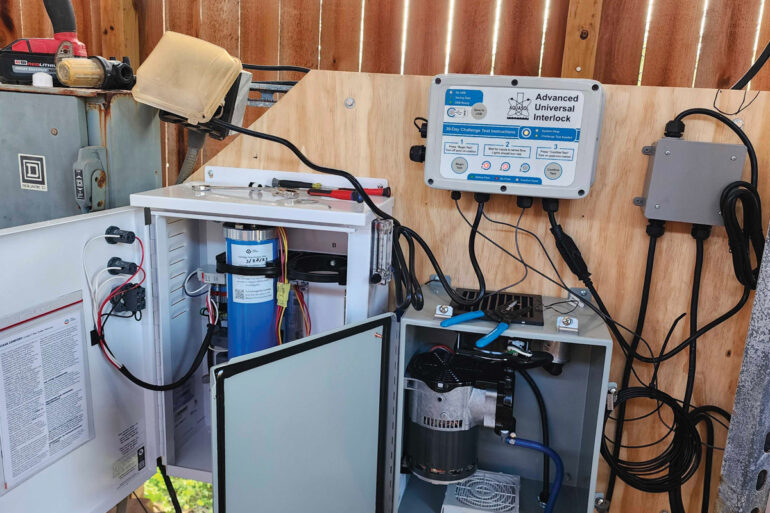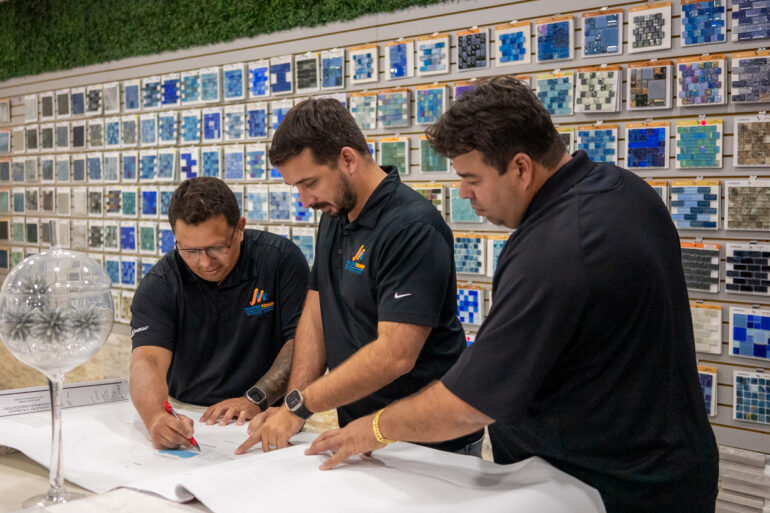Trust is the Real Service
Building relationships with commercial clients

Trust is the foundation of any strong professional relationship — built on the expectation that work will be done consistently and clearly. For pool professionals serving commercial clients like HOAs, community pools, hotels and fitness centers, that trust is critical. Earning it with property managers and facility directors isn’t optional — it’s essential for long-term success.
These decision-makers demand reliability, professionalism and transparency, in addition to technical skills and a broad knowledge of pool operations. “They also need to know that we will treat them right and will be there for them when they need help,” says Javier Payan, president and CEO of Payan Pool Service, which has 55-60 commercial clients throughout the Greater San Diego area.
The trust-building process begins with the first interaction. “You only have one chance to make a first impression,” says Alex Stewart, owner of Pool Training Academy, a national Certified Pool Operator training institute headquartered in Centennial, Colorado. “Positioning yourself as professional and knowledgeable, and good at communication and follow-up, are probably the best things you can do.”
When you’re trying to land a commercial client, having the CPO badge “gives you a leg up” and helps to differentiate you from the competition, he says. It shows you have a comprehensive understanding of pool systems and can diagnose and solve issues efficiently, thanks to a solid educational foundation.
Before service begins, clearly communicate how your process works. Stewart suggests letting clients know when and how you’ll be in touch, what kind of work you’ll be doing (whether cleaning, water balancing or repairs) and how you’ll share the information. Do you plan to use an app, paper logs or email summaries? What kind of testing will you perform, and how will you explain the results? Transparency in this early stage sets the tone and expectations for your relationship going forward.
Once the contract is signed, some companies will go on autopilot, but “that’s a surefire way to have a client start looking elsewhere,” Stewart says. “The moment you stop seeming like you are passionate about working on their specific property is the moment that their trust starts waning toward your company and you as an individual.”
Some companies take proactive steps to reinforce client trust. Payan says his company has several “touch points” throughout the year — not to sell products but to foster relationships. His staff contacts clients as a reminder before their regular visits and asks if there’s anything they need or anything they’d like their tech to take a closer look at. Scheduled filter cleanings are another opportunity to ask, before the service call, “How are things going?”
Payan says he noticed clients hadn’t been following up on their maintenance recommendations: “They had them, but they probably got buried,” he says.
Last year, he and his team launched a system called “compliance checkups” — free, annual inspections performed immediately after a regular service visit. The goal is to ensure commercial clients remain up to code and that none of the team’s recommendations are overlooked. “If a sign needed replacing, we just did it,” Payan says. “If there was anything the county required, like a life ring, we brought one in from the truck. They didn’t have a choice; they were going to get shut down if they didn’t comply.”
This proactive approach — now in its second year — allows Payan to revisit the on-site managers, who are appreciative and receptive of his efforts. It also creates an opportunity to address those previous recommendations and to identify potential issues, which adds value while reinforcing trust.
Compliance requirements for commercial properties are much more complex than those for residential pools. Meeting them demands a solid understanding of local, state and federal codes — something that both pool professionals and their clients must be educated on. Pool pros should provide a copy of the applicable health and safety codes, Stewart says, highlighting the areas you will cover under your contract and things operators need to do to comply with codes.
For example, imagine you are evaluating main drains at the bottom of the pool, which require federal antientrapment covers. Clients rely on you to know which covers meet the code. “You’re offering that additional support element that’s only going to solidify trust in your brand,” Stewart says.
Even with strong systems in place, issues can still arise — and this is where professionalism and communication matter most. Payan recalls a situation where the health department closed a property because of chipped plaster on the pool steps. The concerned property managers called him, asking, “You’re our pool maintenance company — why didn’t you tell us about this?”
Payan’s team had recommended resurfacing the pool several times, but the client hadn’t taken action. “We can’t [make the decision] for you, but we did bring it up,” he reminded them. The client admitted the oversight, and Payan’s team quickly completed the repair — ultimately reinforcing the trust in their relationship.
Trust isn’t built overnight, but it grows with every on-time service call, accurate test result and well-informed solution. Earning that trust leads to satisfied clients — and the kind of word-of-mouth referrals that help your commercial pool service business thrive.






